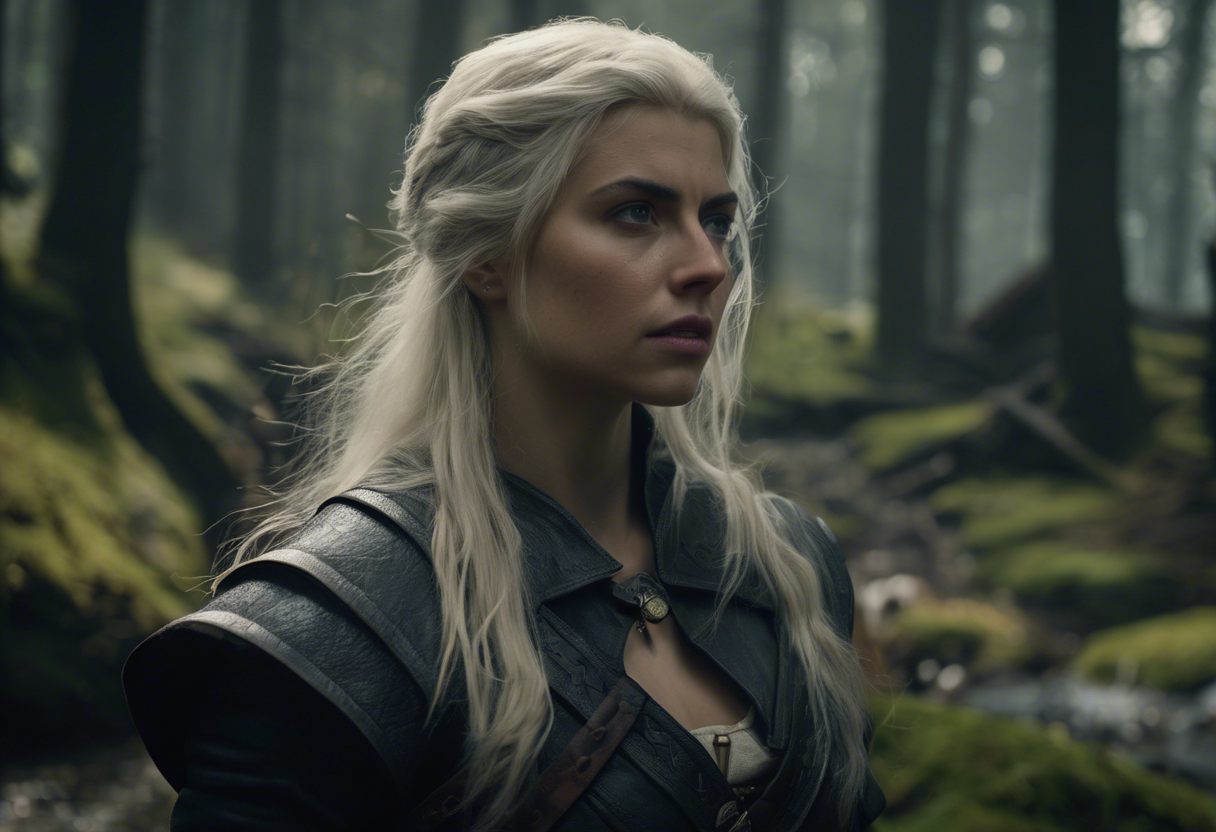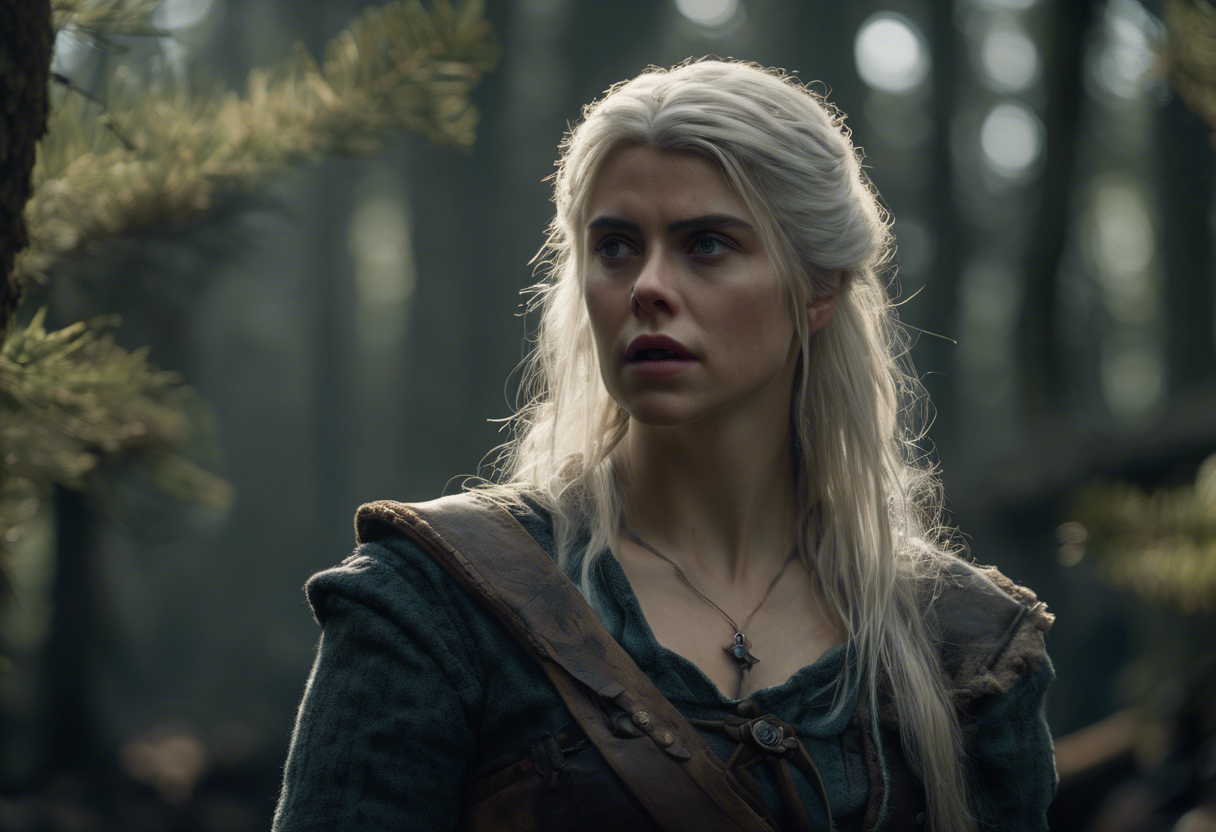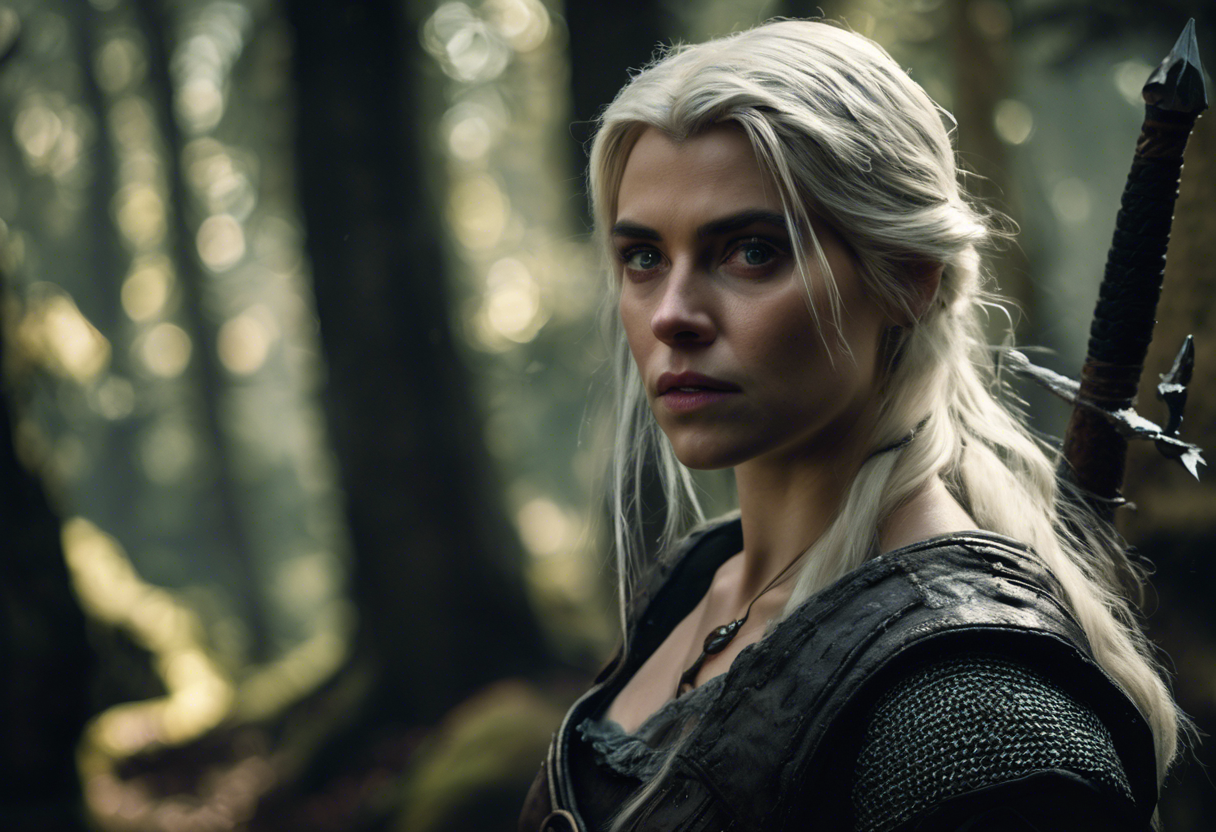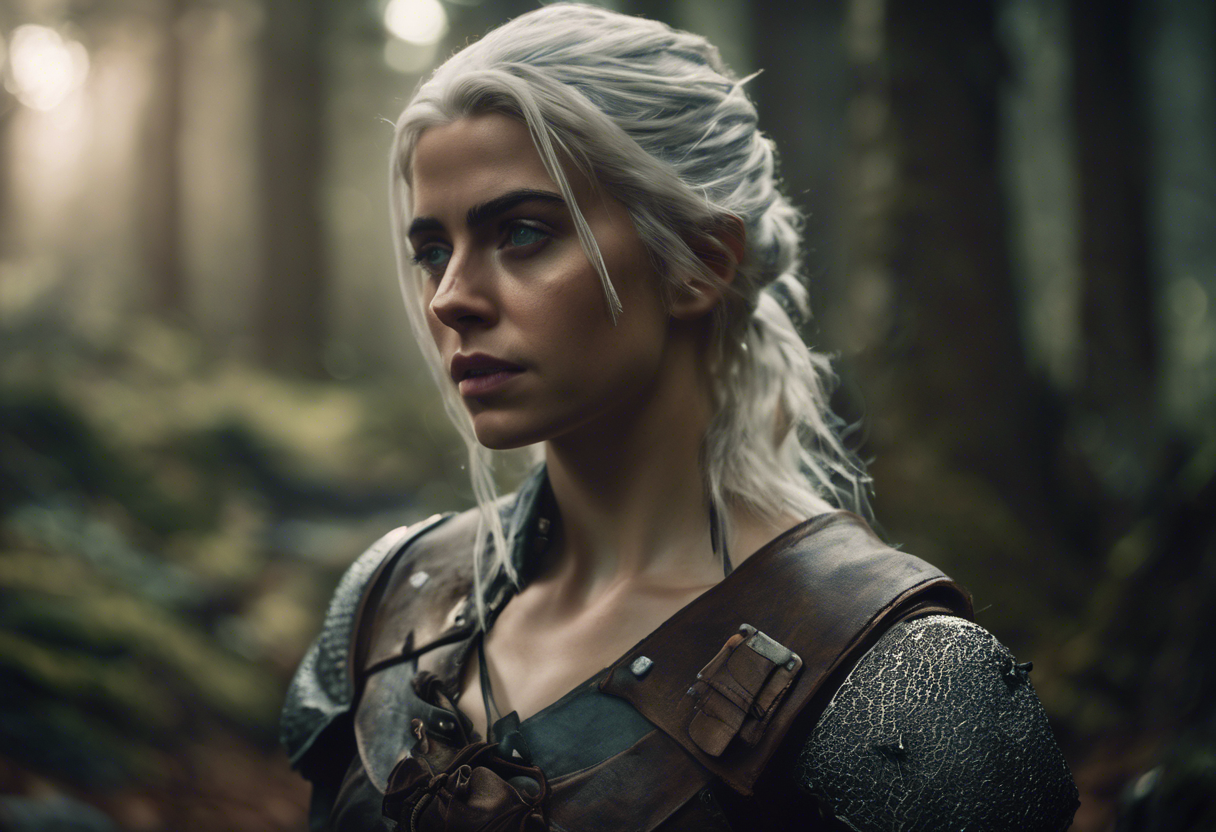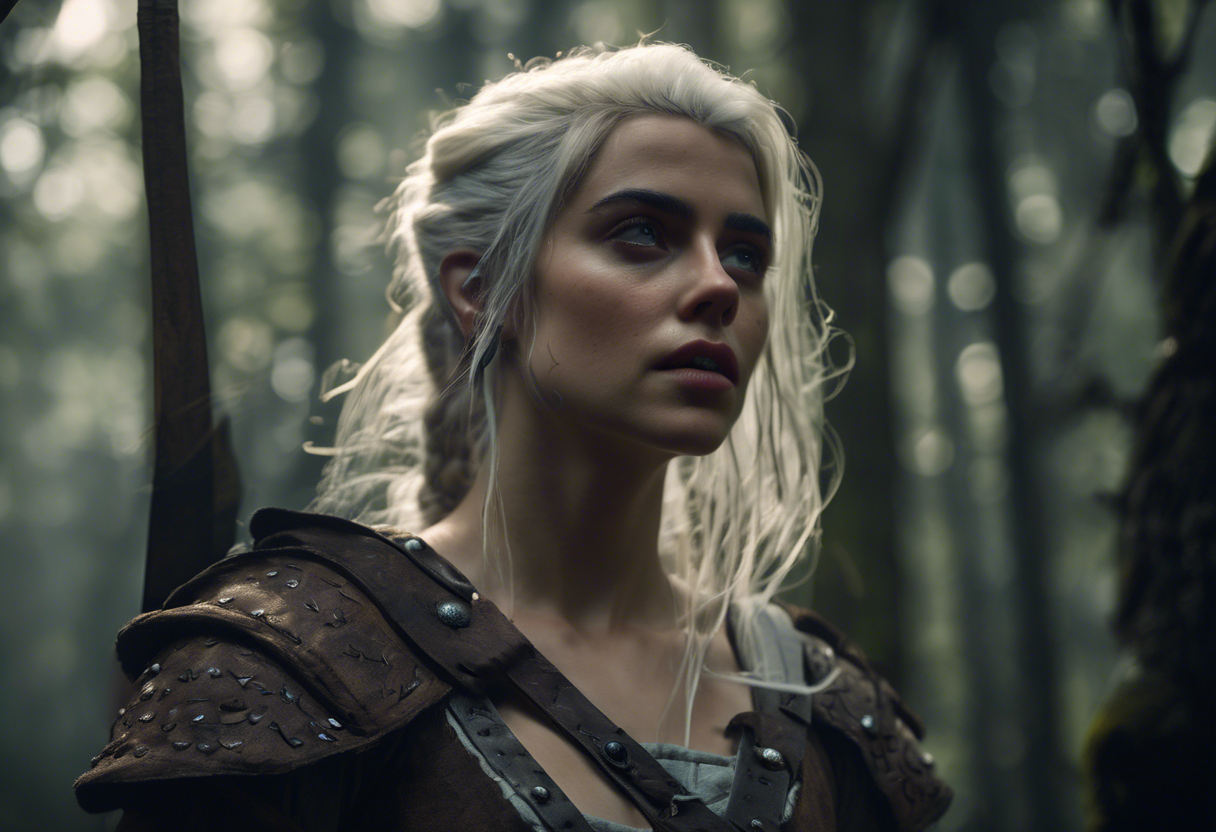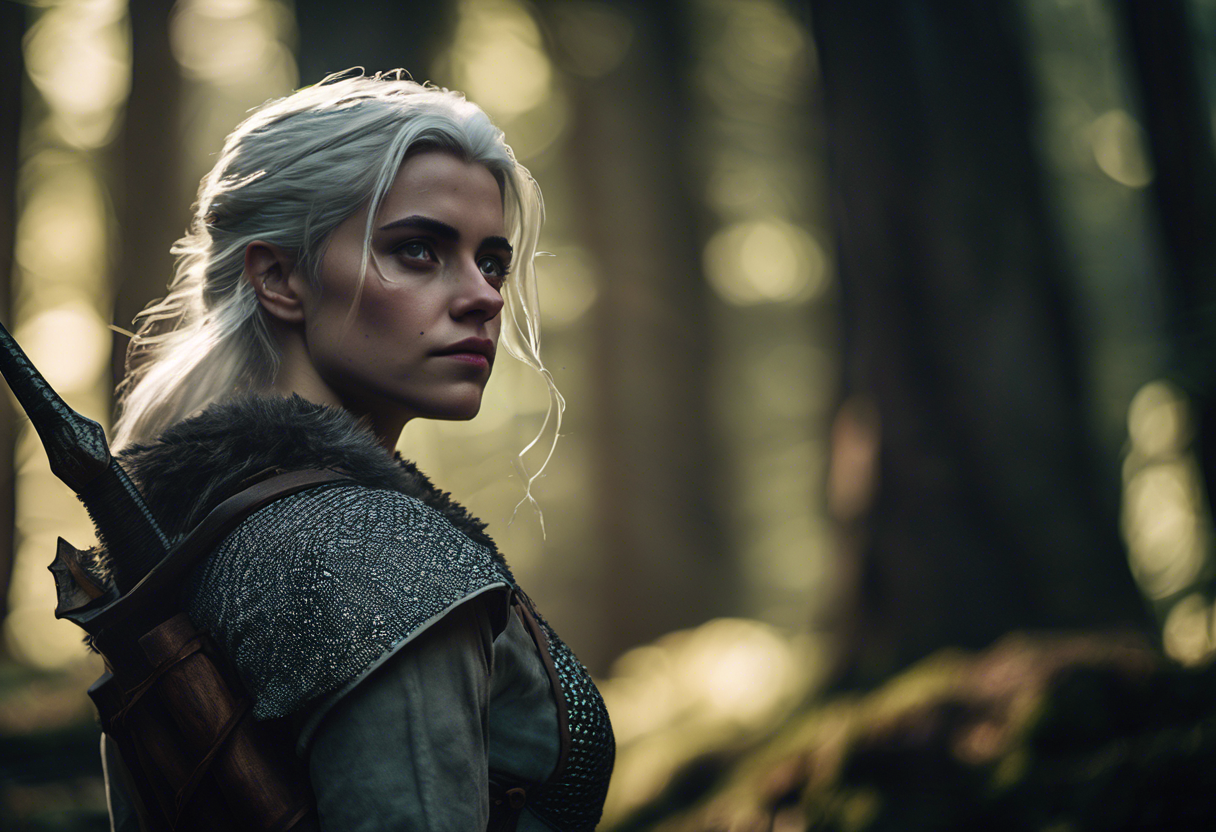Contents
Ciri of Cintra: The Central Figure of The Witcher Series
Introduction
Cirilla Fiona Elen Riannon, commonly known as Ciri, is a pivotal character in the Netflix series "The Witcher," based on the book series by Andrzej Sapkowski. Born as the princess of Cintra, Ciri is the daughter of Pavetta and Duny (the Urcheon of Erlenwald) and the granddaughter of Queen Calanthe, known as the Lioness of Cintra. Her life is intricately linked with that of Geralt of Rivia, the White Wolf, who becomes her adopted father and protector.
Ciri’s significance in the series is multifaceted. She is not only a princess but also a wielder of extraordinary powers derived from her Elder blood, a rare and ancient Elven bloodline. This lineage grants her the ability to traverse space and time, making her a central figure in the narrative’s exploration of destiny, power, and the interconnectedness of worlds.
Ciri’s character draws from broader literary traditions of the "chosen one" archetype, yet her unique blend of vulnerability, determination, and innate power sets her apart. Her journey is a compelling mix of personal growth, survival, and the fulfillment of a grand destiny that shapes the fate of the Continent.
Role in the Series
Ciri’s storyline is a complex and dynamic arc that spans multiple worlds and timelines. Initially, she is introduced as a princess of Cintra, living a sheltered life under the care of her grandmother, Queen Calanthe. However, her life takes a drastic turn when the Nilfgaardian Empire invades Cintra, forcing her to flee and embark on a perilous journey to survive and uncover her true identity and powers.
Throughout the series, Ciri is on the run from various factions, including the Nilfgaardians, who seek to exploit her powers for their own gain. Her path crosses with Geralt of Rivia, who is destined to protect her, and Yennefer of Vengerberg, a powerful sorceress who becomes a motherly figure to her. Ciri’s training at Kaer Morhen, the stronghold of the Witchers, and later at Ellander under Yennefer’s tutelage, prepares her for the challenges she faces.
Ciri’s powers are a key aspect of her role in the series. She can create powerful blasts when frightened, has a sixth sense that guides her, and most importantly, can create portals between different spheres or dimensions [2][3]. These abilities make her a target for various groups, including the Wild Hunt, a spectral group of riders who seek to recruit her.
Her journey is marked by significant events such as her time with the Rats, a gang of young thieves, her capture by the bounty hunter Leo Bonhart, and her eventual escape to the world of Aen Elle. Each experience shapes her character and prepares her for the ultimate fulfillment of her destiny.
Character Analysis
Ciri is a character defined by her bravery, determination, and a touch of naivety. Raised as a princess, she is initially unaware of the harsh realities of the world but quickly adapts to her new circumstances. Her personality is forged through her experiences, making her resilient and resourceful.
One of Ciri’s most compelling traits is her unwavering determination. Despite facing numerous challenges and dangers, she remains committed to her goals, whether it is finding Geralt or understanding her powers. This determination is balanced by her vulnerability, which makes her relatable and human.
Ciri’s relationships with other characters are crucial to her development. Her bond with Geralt is paternal and protective, while her relationship with Yennefer is maternal and nurturing. These relationships provide her with the support and guidance she needs to navigate her complex world.
Ciri’s character also explores themes of identity and self-discovery. As she navigates different worlds and encounters various cultures, she begins to understand her true nature and the extent of her powers. This journey of self-discovery is a central theme in her character analysis, highlighting her growth from a naive princess to a powerful and aware individual.
Themes and Symbolism
Ciri embodies several key themes in "The Witcher" series. One of the most significant is the theme of destiny. Her life is intertwined with that of Geralt and Yennefer, and her actions have far-reaching consequences for the entire Continent. This theme highlights the idea that individual actions can shape the course of history.
Another theme associated with Ciri is the power of identity and self-discovery. Her journey is a metaphor for finding one’s true self and understanding one’s place in the world. This theme is particularly relevant in contemporary discussions about personal identity and the search for meaning.
Ciri also symbolizes the concept of resilience and adaptability. Despite being thrust into a world of danger and uncertainty, she adapts and survives, often relying on her innate powers and the support of those around her. This symbolism underscores the human capacity to overcome adversity and thrive in challenging environments.
Cultural Impact
Ciri has had a significant cultural impact since her introduction in the Netflix series. Portrayed by Freya Allan, she has become a beloved character among fans of the show. Her portrayal has been praised for its depth and nuance, capturing the complexity of her character from the books.
Ciri’s influence extends beyond the series itself. She has inspired fan art, cosplay, and fan fiction, reflecting her popularity and the strong connection fans have with her character. Her story has also resonated with audiences, particularly young women, who see in her a strong and empowered female figure.
In terms of adaptations, Ciri’s character has been well-received in both the TV series and the original book series. Her character has undergone some changes in the TV adaptation, but these have generally been seen as positive, enhancing her role and depth within the narrative.
Critical Reception
Ciri’s character has received widespread critical acclaim. Critics have praised Freya Allan’s portrayal for bringing depth and emotion to the role, making Ciri a relatable and compelling character. The character’s development throughout the series has been particularly praised, as it aligns closely with the source material while also offering new insights and interpretations.
However, there have been some controversies regarding the pacing and handling of Ciri’s storyline in the TV series. Some critics have argued that her character development could be more consistent, and that certain plot points could be better integrated into the overall narrative. Despite these criticisms, Ciri remains a central and beloved character in the series.
Legacy
Ciri’s enduring appeal lies in her complex and dynamic character. She represents a powerful female figure who is both vulnerable and strong, making her a compelling and relatable character for audiences. Her journey through the series is a testament to the human spirit’s ability to adapt, survive, and thrive in the face of adversity.
In contemporary discussions, Ciri’s character continues to be relevant. She embodies themes of identity, resilience, and the power of individual actions, which are highly pertinent in today’s world. Her influence can be seen in other works of fantasy and fiction, where strong female characters with complex backstories and powers are becoming increasingly popular.
Ciri’s legacy is also reflected in her impact on popular culture. She has inspired a new generation of fans who see in her a role model and a symbol of empowerment. As the series continues to evolve, Ciri’s character will undoubtedly remain at its heart, guiding the narrative and captivating audiences with her story.
References
- https://en.wikipedia.org/wiki/List_of_characters_in_The_Witcher_series
- https://www.thepopverse.com/witcher-ciri-the-powers-cirilla-freya-allen
- https://www.charactour.com/hub/characters/view/Cirilla-of-Cintra.The-Witcher
- https://www.youtube.com/watch?v=KQPxD-GbF2c
- https://screenrant.com/witcher-show-netflix-cast-character-guide/

